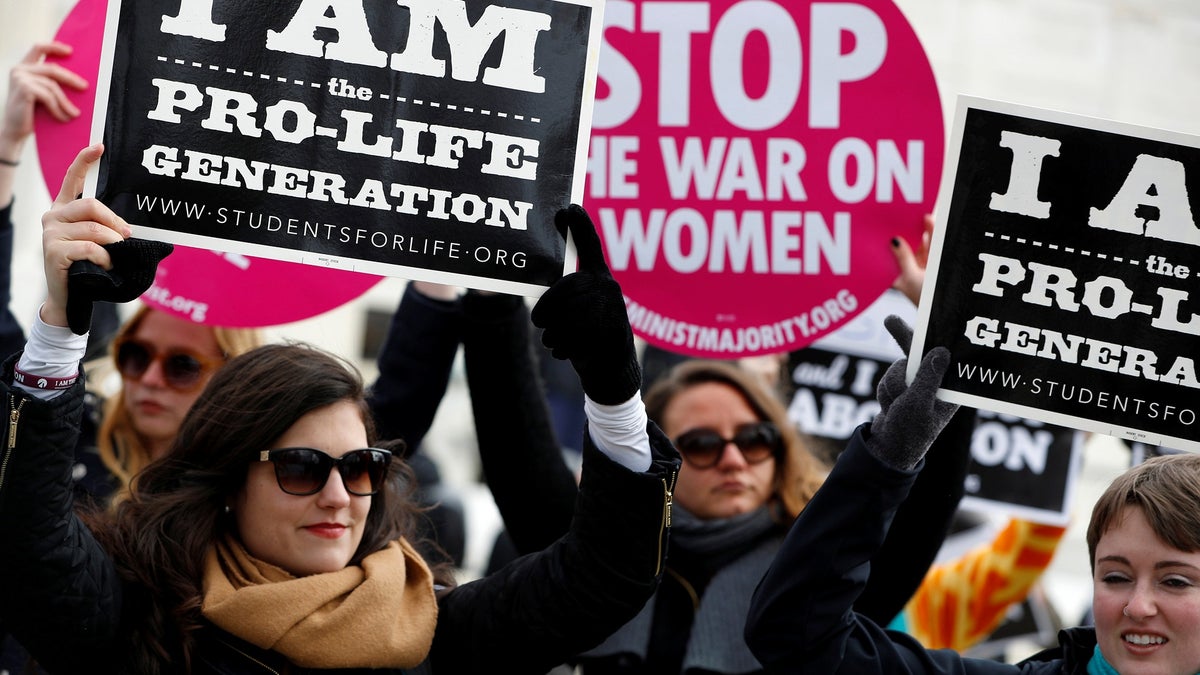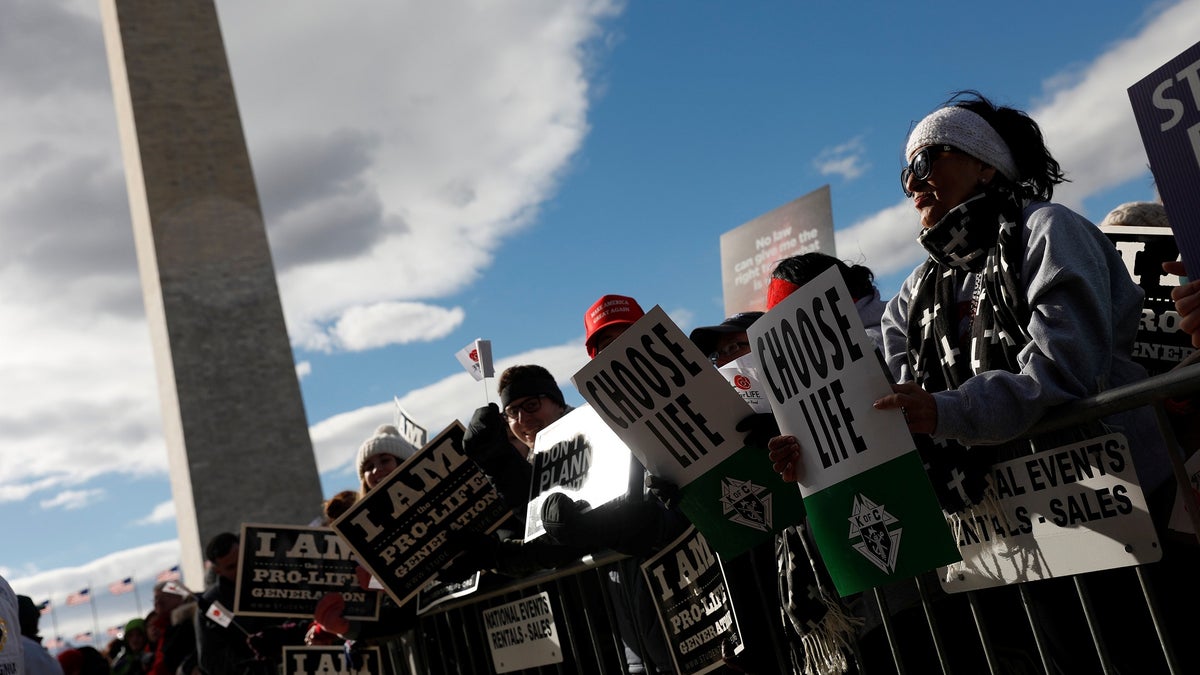Pro-life activists will take to the National Mall in Washington, D.C., on Jan. 18 to commemorate the 46th March for Life, an annual event that protests Roe v. Wade, the Supreme Court’s 1973 landmark ruling that legalized abortion in the U.S.
Vice President Mike Pence told a crowd attending March for Life Friday that it's an "extraordinarily important event."
"The Supreme Court of the United States turned its back on the unalienable right to life, and here, nearly a half-century later, generations of Americans have come together to say, 'no, we are going to put the sanctity of life back at the center of American law,'" he said in a live call to the Ben Shapiro show, which was broadcast at the event Friday.
"And I believe in our lifetime we will accomplish that," Pence added.
MARCH FOR LIFE: ONE MAN MAKES 2,800-MILE 'WALK OF FAITH' TO NATION'S CAPITAL
"We never anticipated that we would be here for so long. Today, we grieve the loss of life. But it’s also an enthusiastic time; we’re changing hearts and minds,” Jeanne Mancini, president of the March for Life, told Fox News ahead of the event last year.
The march, which is the biggest pro-life event in the country, was first started in 1974 by Nellie Gray, an activist and Catholic who died in 2012 at the age of 88.

Nellie Gray led the first March for Life in 1974. (Reuters/ Aaron P. Bernstein.)
Gray was a fierce advocate and “voice for the voiceless,” as the official slogan for the march states.
“She laid the foundation for March for Life," said Mancini, who has been with the organization for seven years. “It wouldn’t be what it is without Nellie.”
Gray’s initial event 45 years ago has had a long-standing impact on the pro-life community, leading some activists, such as Amanda Fowley, to attend the event every year for well over a decade.
“There is no more important issue for me," Fowley, who has attended every year since she was 13, told Fox News at the march in 2017. At the time, the pro-life activist traveled to the march from Rhode Island with her husband.
Here's what you need to know about the March for Life.
What is it?
The March for Life is the nation’s largest annual pro-life event. The event protests Roe v. Wade, but also works throughout the year to educate Americans about the “biggest human rights abuse of today, of our time,” Mancini said, adding that she often travels to schools to speak about the march and the broader pro-life agenda.
Additionally, the non-profit is “involved every day on the Hill to enact pro-life public policy,” Mancini said. “We want laws to represent the inherent dignity of human life and also create a culture where abortion is unthinkable.”
Still, while Mancini added that incremental laws have been enacted on the state level, such as informed consent and parental consent, over half (57 percent) of Americans still support a woman’s right to abortion in all or most cases, according to a recent study from the Pew Research Center.
“We are very committed to moving in the right direction and have a real intensity and burden to do more,” she said.
Who will be there?
This year’s March for Life included some notable speakers, such as Dr. Alveda King, the niece of the famed civil rights leader Dr. Martin Luther King Jr., Sen. Steve Daines, R-Mont., Ben Shapiro, the editor-in-chief of The Daily Wire and Rep. Chris Smith, R-N.J., according to the march's website. A full list of speakers can be found here.
Where does it start?
The official march will begin on Constitution Avenue at 1 p.m. ET.
1974 to now

The March for Life is in its 45th year. (Reuters/ Aaron P. Bernstein)
CHARLOTTE PASTOR SAYS HE PRAYED WITH KNIFE-WIELDING ATTACKER BEFORE SUFFERING CUTS TO FACE
Gray led the first March for Life on Jan. 22, 1974 — exactly one year after the Supreme Court affirmed a women’s right to abortion in a 7-2 decision. At the time, roughly 20,000 people attended the rally, which was initially intended to be a one-off event. But Gray later decide that the march would take place every year until Roe v. Wade was overturned.
It's not currently clear how many people are slated to march on Jan. 18. But ahead of the event in 2018, Mancini estimated 100,000 people would attend. And while it does not give exact figures, the March for Life’s website estimates that 2009 was its most-attended year on record.









































